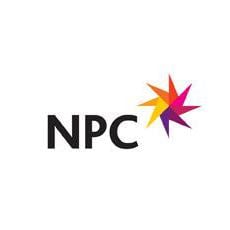 “Although the cultural, legal and technical barriers to releasing data within government are real and need to be negotiated, there has been a clear public commitment to doing so. And when we started talking to the Ministry of Justice a couple of years ago, we found we were pushing at an open door.” Squarely on the point of using data to demonstrate impact, Rob Abercrombie of New Philanthropy Capital (NPC), provides a window into what’s possible when nonprofits access, understand, and act upon high-quality data. …Imagine the new set of decisions enabled by proving that what you do is working.
“Although the cultural, legal and technical barriers to releasing data within government are real and need to be negotiated, there has been a clear public commitment to doing so. And when we started talking to the Ministry of Justice a couple of years ago, we found we were pushing at an open door.” Squarely on the point of using data to demonstrate impact, Rob Abercrombie of New Philanthropy Capital (NPC), provides a window into what’s possible when nonprofits access, understand, and act upon high-quality data. …Imagine the new set of decisions enabled by proving that what you do is working.
…
In the UK roughly half of prisoners will re-offend within 12 months, a shocking statistic. Chris Grayling, the Justice Secretary, recently said that “Britain’s problem is less about offending and more about re-offending,” There is a diverse sector of criminal justice charities in the UK that help offenders with everything from finding housing, through getting ready for the job market, to building better relationships with their families. What these charities share are significant difficulties in knowing if their work actually reduces or prevents re-offending.
The binary outcome, re-offending or not, sounds straightforward to measure, but getting hold of the information to prove whether a particular approach works isn’t straightforward. The government knows exactly who has been convicted for a crime, but that data has until recently been difficult to get at. This is a problem not only for knowing whether an intervention works, but increasingly for getting paid for it—state funding is moving rapidly onto a ’payment by results’ basis, where a high standard of evidence is required.
NPC’s mission is to make charities more effective, and our daily business is helping them think about, measure, and communicate social impact. Access to data and evidence is something we therefore care a great deal about, and we saw an opportunity in this. Although the cultural, legal and technical barriers to releasing data within government are real and need to be negotiated, there has been a clear public commitment to doing so. And when we started talking to the Ministry of Justice a couple of years ago, we found we were pushing at an open door. In April of this year the ‘Justice Data Lab’ was launched.
The justice data lab approach
This flagship initiative allows charities to access real data on offending rates. It works like this; a charity that has worked with offenders or ex-offenders can upload to the lab the details of cohorts of people they have worked with. The lab supplies actual data on their re-conviction rates and those of a matched comparison group. The result? Charities get to find out if their approach has had an impact on re-offending, and are able to prove it. And over time the evidence on what works will be built across the sector. We know the Justice Data Lab won’t solve everything, and that measuring re-offending rates provides only a snapshot of impact. But providing charities with access to statutory data so they can prove their worth is a big deal, and a big win for NPC.
This was not an easy process, but it was easier than we expected. A combination of the right political mood, and a great champion—the then chief statistician within the ministry—made feasible what 10 or even 5 years ago would not have been. Funded by the Oak Foundation we are now embarking on a further programme to see if we can repeat the trick with other government data sets related to homelessness and its prevention. There are, however, two big challenges I want to share with you, and neither are the ones we anticipated.
Notable challenges
The first is the need for brokerage between government and the not-for-profit sector. Even once the Ministry of Justice committed and a budget was secured, there was a real risk that what resulted would fail to meet the needs of non-profits. We found there was a translation problem–that the government did not have a clear idea of what would work for charities and that charities needed to speak with one voice about what they could use. NPC took a facilitation role, working out what the sector needed, talking the language of data and statistics to experts within government and helping the Ministry of Justice create a service that connects with those needs.
The second challenge is the tougher one. When we were working with the Ministry of Justice on the creation of the Justice Data Lab we were both conscious that supplying data is futile if there is no demand. We surveyed criminal justice charities and 8 out of 10 told us that the Justice Data Lab would be useful to them. Post-launch it has proved that trail-blazing charities have been quick to see the opportunity and are making use of the service. For others, however, there are clearly barriers between wanting the data in theory and accessing it in practice, and crucially understanding and acting on what it shows. Those barriers are about obvious things like capacity to work with data, but are also more subtle, to do with culture and incentives. The clear lesson for us is that securing the supply of data is vital for raising the not-for-profit sector’s game, but just as important is the will and ability of charities to deploy it.
